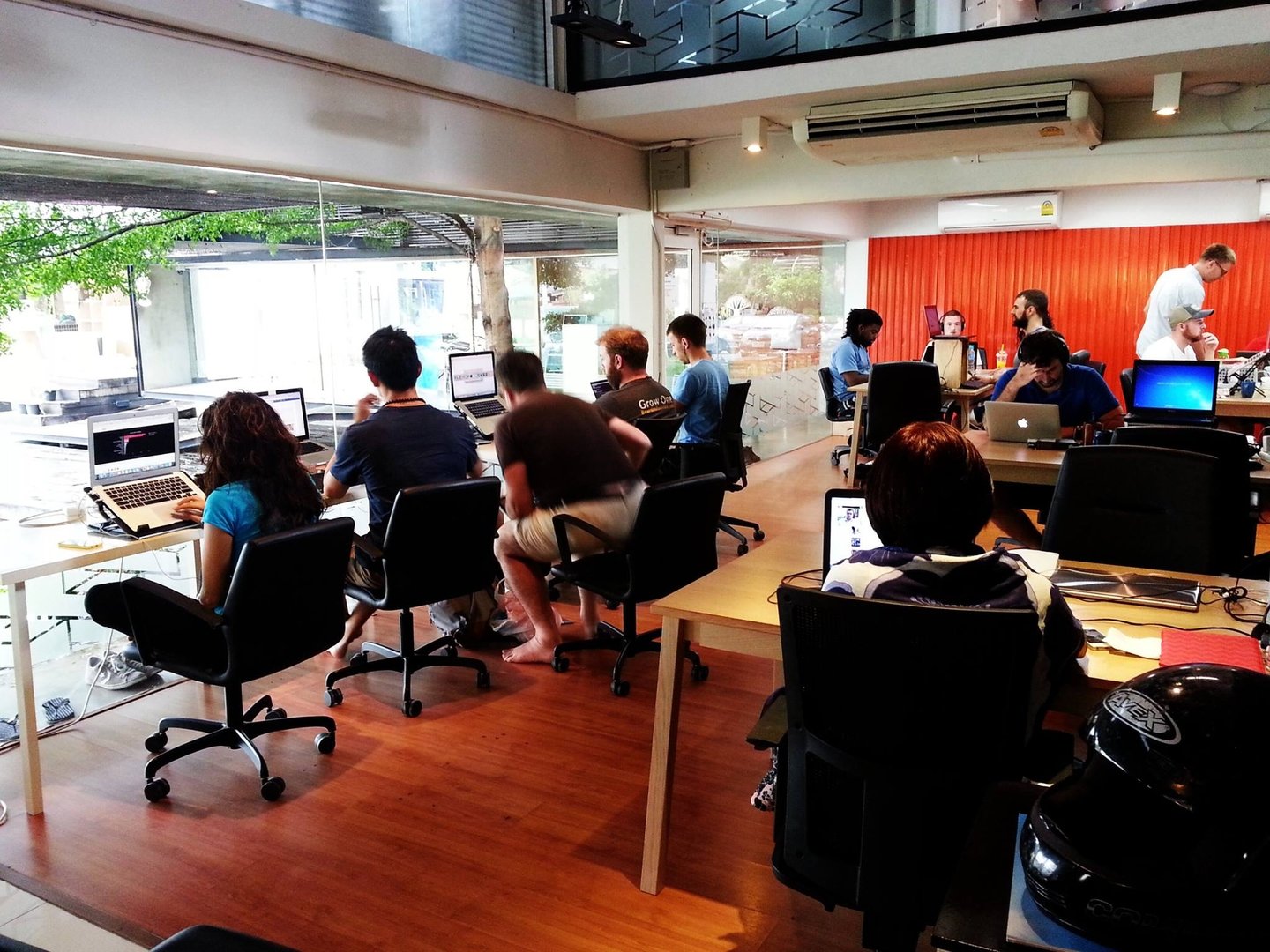Changed Times
A look at alternative lifestyles in the digital age.
Recently, I’ve been thinking about how different things are; how things have changed compared to the past.
I’m studying a subject which simply didn’t exist a century ago, and which looked rapidly different half a century ago to today. The same is true for a decade ago.
We live in a world where software controls everything, but much of the population thinks that people in the tech sphere just fix computers. (Which they think involves uninstalling software…) It’s a whole new world that many don’t really understand.
This new world brings new opportunities. In the past, unless you were fortunate enough to be born to wealth, in all likelihood you would have to work for somebody else for the rest of your life. You needed capital to start something of your own.
The present has opportunities for lifestyles which were never possible before.
These days, it’s easier than ever for somebody to strike out on their own and do their own thing. You can start your own company, use out-of-the-box solution for your web presence, and supply to people all over the world. With the advent of the internet, it doesn’t matter if you’re making a niche product or one for general consumption, both are viable. When you can be reached from the whole world, a niche isn’t so small anymore.
Another opportunity that the internet creates is the concept of Software as a Service (SaaS). This is where users pay a subscription to use software. It’s a very popular business model.
Unlike traditional products, software has the virtue of being ethereal. It can be copied and distributed an unlimited amount of times with minimal expenditure. It requires no manufacturing to produce and no warehousing to store. In fact, Software requires no physical infrastructure at all - it can created completely remotely.
These factors - the viability of niche businesses and that profitable software can be created remotely - lead to a very interesting possible lifestyle choice. The Digital Nomad.
What is a Digital Nomad?
A Digital Nomad is someone who works remotely using the internet whilst moving from place to place. Any remote worker is applicable - they could own their own business, do consultancy online, write books, or publish online as a lifestyle blogger on platforms like YouTube. They work from coffee shops, beaches, hotels, wherever. They aren’t tied down to a specific city and can move on as they please. They may rent their own office space, or work at a co-working area.
 A coworking space in Chiang Mai, a popular Digital Nomad destination. (source: coworksquare.com)
A coworking space in Chiang Mai, a popular Digital Nomad destination. (source: coworksquare.com)
Why is this appealing?
Digital Nomads have much more freedom than the average person. Because they run their own business, they can choose what to work on and when to work on it.
It upsets me how many smart people go off and create software for companies like Microsoft and Facebook. These companies are big enough as it is. The employees at these companies are paid, essentially, to line the shareholders pockets. You’re either creating something so insignificant that your contribution doesn’t really matter, or you’re creating something that you could have had a share in yourself. Some companies even go so far as to claim ownership of anything an employee creates in their spare time.
I think a core tenet of the appeal of Digital Nomadism is that you’re creating your dream, not somebody else’s. You’re creating for yourself; what you create will reflect you.
Another appeal to Digital Nomadism is that you can chose to live abroad whilst still doing the same work. So many people from the UK tend to leave when they retire to become expats. As a Nomad you can do it as part of your daily life. In fact, it can actually be very beneficial to do it. It’s cheaper to live in some foreign countries (eg: Thailand), which means that your company doesn’t have to be as profitable as it would have to be back home.
I think one of the most interesting parts of the lifestyle is that you will find out a lot about yourself. Whether you work better with a routine or no routine. What new foods you might like. If you crave stability or new things.
What are the problems?
Well, to be able to have a chance at this you need to have a company that can support you. It’s cheaper to be a nomad because you’re not paying rent, but it’s not free.
NomadList, a site which ranks destinations for Digital Nomads, lists 310 cities that can be lived in for under $1250/m, and 97 for under $750/m. $1250 is ~£1000 which is under the UK minimum wage.
That doesn’t seem like that much. Whilst I haven’t commercialised a project myself, so I have no idea how hard those figures would be to reach, they don’t seem impossible.
Other than financial, there are also social concerns - you’re leaving your family and friends behind, and that could leave you feeling isolated. It’s obviously important to keep in contact. Students already have this problem, and it’s probably the same for people who have to move to work. You just have to maintain those old relationships whilst you make new ones. :)
Alternatives
I first heard about nomadism when I heard the story of ‘Alexander Supertramp’, as seen in the film Into The Wild. His life choices were really interesting to me, and gave me a whole new perspective on things. I never considered living his lifestyle; it seemed like a suicide mission. He had no income and no survival skills, and perished because of it.
Later, I read an article about digital communities of vagabonds; communities of travellers who live incredibly minimally. The article was about how all these people live without a home, but that they stay connected by charging up at fast-food joints or using solar panels, and have a whole network where they share tips and experiences.
 A trainhopping vagabond. (source: mikebrodie.net)
A trainhopping vagabond. (source: mikebrodie.net)
The article contained a link to the reddit community, which I read with a certain level of interest and admiration. The freedom of the lifestyle had a certain level of appeal, but unfortunately it seems that a lot of the people in that community just use it as thrill seeking and as a way to take drugs, which is really uncool. They do a lot of illegal stuff like train-hopping too, which makes me uncomfortable.
These lifestyles are quite apart from the ‘cool’ Digital Nomads I’ve been talking about. They aren’t at all about creating a business whilst travelling, but they did give me the idea of the ‘Digital Vagabond’ - somebody who stays in their native country and camps out, using facilities like laundrettes and gyms for their cleaning and showering needs.
I hadn’t heard about anyone living this lifestyle until my friend linked me to Stef Roberts. Stef is a digital nomad/vagabond who lives in the UK. He camps in the woods at night and runs his business from coffee shops in the day. He uses a car to drive from place to place, so I still feel like he’s a little tied-down, but he’s still much freer than most.
I reckon it would be possible to live Stef’s lifestyle with a bike rather than a car. That has more appeal but also its own unique challenges. There’s also the more vehicle-centric lifestyle where you live out of a recreational vehicle. It has much less of an appeal to me. What’s the point of being nomadic if you have to stick to the same home?
Could you become a Digital Nomad?
I’d argue that Yes, everyone could become a digital nomad, if they really wanted to. So long as you have some way of creating value that people will pay for, and that you can create it from anywhere with just a laptop, you can be a digital nomad. Digital Artist? Nomad. Writer? Nomad. Consultant? Nomad. Etc.
There are obviously a lot of jobs which can’t be remote (Doctors, Nurses, etc), but you don’t have to take those jobs. Some people may find more meaning in their life from caring for people than being nomadic, and that’s okay too.
I’d really like to try the Nomad lifestyle. Even if I find it isn’t for me, I think it would be better to try and fail, than to spend an eternity wondering “What if?”. The challenge will be to make it work.
P.S. I'm late to the party, but I recently got a twitter account that you can follow here.